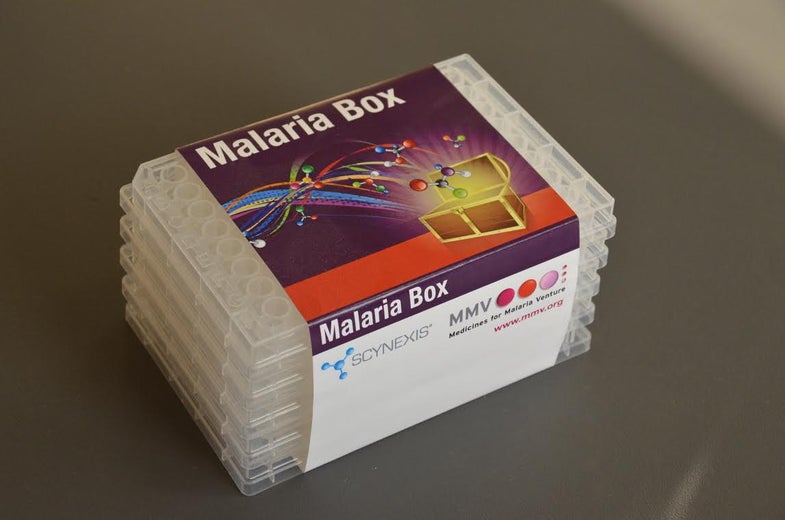Nonprofit Sends Free Kits Of Potential Malaria Cures To Researchers
The Malaria Box is the result of a high-throughput screen done by the nonprofit and cooperating pharmaceutical companies.


Killed Mosquitoes about to Undergo a Lab Analysis for Diseases, 1976
All you have to do is write in. A nonprofit malaria research organization, the Medicines for Malaria Venture, is offering boxes for free that each contain samples of 200 substances that the venture has determined are promising as malaria cures. The Malaria Box is meant to be a starting point for researchers at universities or small companies, who wouldn’t otherwise have access to a starting ground of 200 promising molecules.
The Malaria Box takes a cue from large pharmaceutical companies, which have long had a clever way of discovering new medicines. Companies perform what are called high-throughput screens, using robots to test thousands of chemicals to see if any kill a bacteria species, for example. At this step, it doesn’t matter why a chemical works, just that it does. Once a screen has identified a smaller number of interesting chemicals, human researchers at the company might perform more detailed tests on them.

A Malaria Box
The Malaria Box helps researchers at smaller facilities skip right to the step where a human comes in to do more detailed work on screened molecules. It’s likely only a few of the chemicals in the box, if any, would be good as medicines. The success rate of high-throughput screens is usually very low, below one percent. But like that guy or girl you know who maximizes his chances with romance partners by asking out a looot of people, high-throughput screens count on the luck of sheer volume.
The 200 Malaria Box chemicals came out on top after the Medicines for Malaria Venture and cooperating companies screened 4 million molecules. Scientists at the nonprofit found 200,000 promising chemicals after an initial screen, then chose their final 200 by looking for those that were structurally the least like malaria drugs already on the market, German broadcaster Deutsche Welle reports. The differences could help any new drugs that come from Malaria Box research overcome drug resistance in malaria, one of the box’s creators, Thomas Spagenberg, told Deutsche Welle. The box also includes 200 screened chemicals that are promising as helpers for malaria research, though not directly as cures.
Researchers may order the Malaria Box for free from the Medicines for Malaria Venture website. One major condition for use is that any research from the Malaria Box must be openly published for other scientists to read. The box campaign started two years ago, but it will be years yet before the venture knows whether the box yielded any cures.